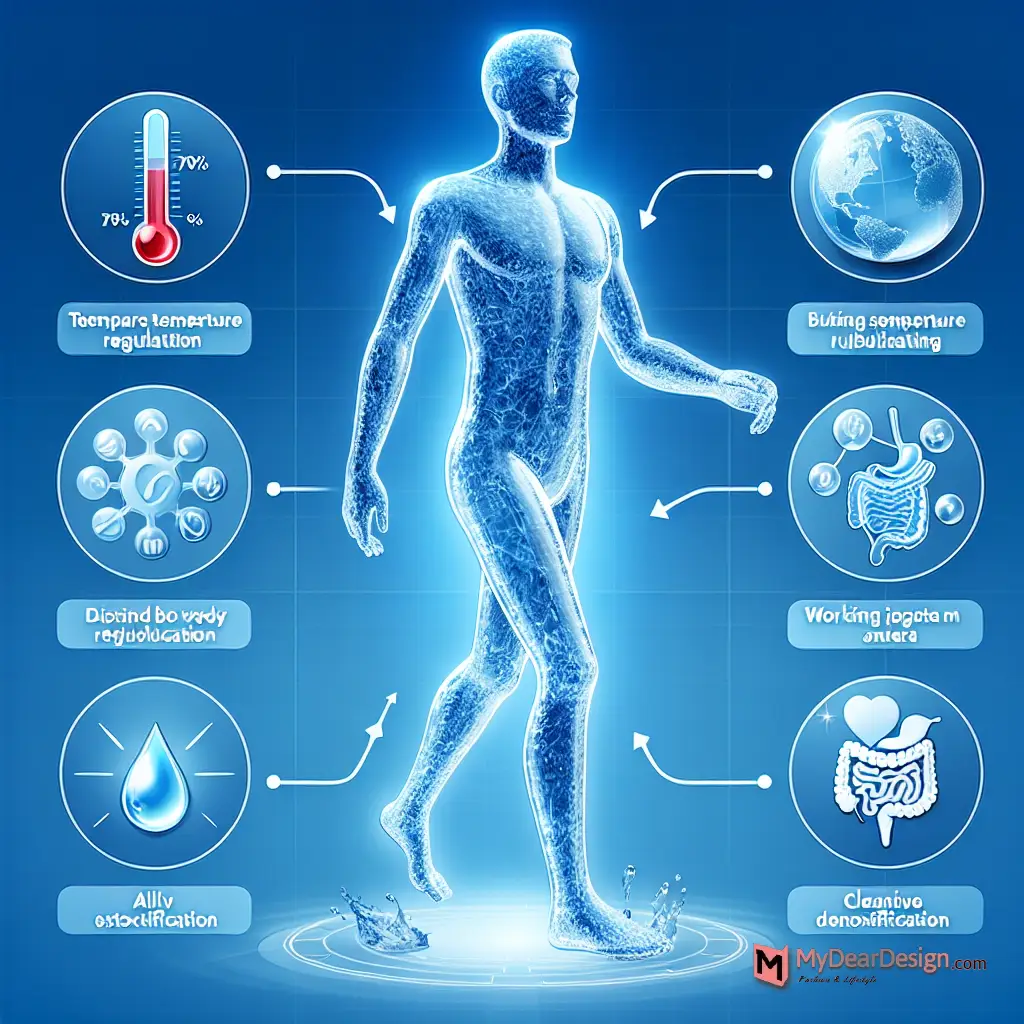In today’s fast-paced world, the pursuit of health and fitness has taken on new dimensions. Well health organic fitness tips are gaining traction as people seek natural ways to enhance their physical and mental well-being. This holistic approach to wellness combines organic nutrition, natural exercise routines, and mindful practices to create a sustainable and effective fitness regimen.
The journey to optimal health involves more than just high-intensity workouts. It encompasses a comprehensive strategy that includes proper nutrition, adequate sleep, effective stress management, and the use of organic supplements. This guide will explore the key components of wellhealthorganic practices, offering insights on how to integrate these principles into daily life for lasting health benefits and improved overall fitness.
The Importance of Organic Fitness

Defining Organic Fitness
Organic fitness is a holistic approach to well-being that goes beyond traditional exercise routines. It emphasizes natural, whole, and authentic lifestyle choices that align with our evolutionary heritage . This approach recognizes that many modern health concerns stem from lifestyle choices that conflict with our genetic adaptation to a physically active, outdoor environment .
Benefits of an Organic Approach
An organic approach to fitness offers numerous benefits:
- Comprehensive Well-being: Organic fitness addresses multiple dimensions of health, including physical, mental, emotional, and social well-being .
- Improved Physical Health: Regular organic exercise enhances cardiovascular health, strengthens muscles, and boosts metabolism .
- Enhanced Mental Health: Physical activity releases endorphins, promoting mental well-being and reducing stress, anxiety, and symptoms of depression .
- Balanced Approach: Organic fitness encourages a variety of activities, including cardiovascular exercises, strength training, flexibility work, and mindfulness practices .
- Mind-Body Connection: This approach emphasizes being present during workouts, focusing on sensations, movements, and breath, which deepens awareness and improves coordination .
- Long-term Sustainability: Organic fitness promotes a lifestyle that supports overall well-being, leading to long-lasting results and improved quality of life .
Holistic Health Perspective
Organic fitness takes a holistic view of health, recognizing the interconnectedness of various aspects of well-being:
- Physical Well-being: It focuses on natural movement patterns and clean, whole foods to support bodily health .
- Mental Well-being: This approach acknowledges the impact of physical activity on cognitive function and emotional stability .
- Emotional Wellness: Organic fitness helps develop self-awareness, emotional regulation, and positive relationships .
- Social Connections: It recognizes the importance of social interactions and support systems in overall health .
- Spiritual Wellness: This perspective includes exploring one’s beliefs, values, and sense of purpose .
- Environmental Awareness: Organic fitness considers the impact of our environment on our health and encourages a connection with nature .
By adopting an organic fitness approach, individuals can achieve a more balanced and harmonious state of health. This method aligns with our natural rhythms and genetic predispositions, potentially conferring the robust health that enabled our ancestors to thrive . It encourages individuals to listen to their bodies, respect their natural cycles, and make choices that support overall well-being .
Nutrition for Organic Wellness

Whole Foods and Their Importance
Whole foods form the cornerstone of organic wellness. These minimally processed, nutrient-dense foods closely resemble their natural state . A diet rich in whole foods emphasizes fruits, vegetables, whole grains, lean proteins, and healthy fats . This approach to nutrition has been associated with preventing and managing chronic diseases, supporting weight loss, and promoting overall health .
Whole foods offer numerous benefits:
- Nutrient Density: They are packed with essential vitamins, minerals, fiber, and phytonutrients .
- Minimal Processing: Whole foods undergo little to no alteration from their original form .
- Low Additives: They contain minimal added sugars, salts, preservatives, and artificial flavorings or colorings .
Research suggests that a diet centered on whole foods may reduce the risk of chronic diseases such as heart disease, diabetes, obesity, and certain types of cancer . Additionally, the high fiber content in whole foods, particularly fruits, vegetables, whole grains, and legumes, has been proposed to foster a diverse and healthy gut microbiome .
Organic vs. Non-Organic Produce
The choice between organic and non-organic produce has become increasingly significant in recent years. Organic foods have been shown to have lower levels of toxic metabolites, including heavy metals such as cadmium, and synthetic fertilizer and pesticide residues . This reduction in harmful substances has potential health implications for consumers.
Studies have revealed that organic foods often contain higher levels of beneficial nutrients compared to their conventional counterparts. On average, organically grown foods provide:
- 21% more iron
- 27% more Vitamin C
- 29% more magnesium
- 13% more phosphorus
Furthermore, organic foods have been found to have higher levels of omega-3 fatty acids and antioxidants, which may enhance their disease-prevention properties .
While the current evidence base does not allow for a definitive statement on the health benefits of organic dietary intake, a growing number of observational studies are linking demonstrable health benefits with organic food consumption . Significant positive outcomes associated with increased organic intake include reduced incidence of infertility, birth defects, allergic sensitization, and metabolic syndrome .
Meal Planning for Optimal Health
Effective meal planning is crucial for maintaining a nutritious organic diet. By planning meals in advance, individuals can ensure they incorporate a variety of whole foods and organic produce into their diet while managing their budget effectively .
Here are some tips for successful meal planning:
- Set a budget: Understanding your budget helps guide food choices and prevents overspending .
- Check for sales and promotions: This allows for bulk buying and cost savings .
- Plan meals before shopping: Create a list of easy organic meals for the week to avoid unnecessary purchases .
- Incorporate leftovers: This reduces food waste and saves money .
- Include vegetarian meals: Organic meat can be expensive, so incorporating vegetarian options can help balance the budget .
By following these strategies, individuals can maintain a nutritious organic diet without breaking the bank. Meal planning also helps in choosing the right selection of nutritious foods as part of a healthy diet .
Natural Exercise Routines

Bodyweight Exercises
Bodyweight exercises form the foundation of natural fitness routines, offering a comprehensive approach to strength and stability. These exercises engage multiple muscle groups simultaneously, promoting functional strength and enhancing coordination . By leveraging one’s own body weight as resistance, individuals can develop a deeper mind-muscle connection and improve proprioception.
Effective bodyweight exercises for a full-body workout include:
- Push-ups: Target chest, shoulders, and triceps
- Pull-ups/Chin-ups: Work the back, biceps, and shoulders
- Squats: Engage quadriceps, hamstrings, glutes, and lower back
- Lunges: Focus on quadriceps, hamstrings, glutes, and calves
- Planks: Strengthen the core, including abdominals and lower back
- Burpees: Provide a full-body workout combining squats, push-ups, and jumps
- Mountain Climbers: Engage core muscles while working shoulders, chest, and legs
- Dips: Target triceps, chest, and shoulders
- Russian Twists: Focus on obliques and core muscles
- Bicycle Crunches: Engage abdominals and obliques
Incorporating these exercises into a routine provides a comprehensive full-body workout without the need for equipment .
Outdoor Workouts
Outdoor workouts offer numerous benefits, including a greater calorie burn and a significant mood boost . The varied terrain and natural obstacles challenge muscles in ways that indoor workouts cannot, leading to improved overall fitness .
Some effective outdoor workout options include:
- High-Intensity Interval Training (HIIT): Ideal for outdoor settings, HIIT combines strength training and cardio to quickly raise heart rate .
- Trail Running: This activity burns more calories than road running due to uneven terrain, engaging both aerobic and anaerobic energy systems .
- Stand-up Paddleboarding (SUP): This full-body workout builds strength and improves balance while enjoying nature .
- Outdoor Circuit Training: Utilize park benches, stairs, or other natural features for a varied workout .
- Hiking: Strengthens lower body muscles and core while providing excellent cardiovascular benefits .
- Cycling: A lower-impact cardio exercise that targets glutes, hamstrings, quads, calves, arms, shoulders, and back .
Yoga and Meditation
Yoga and meditation complement high-intensity workouts by promoting recovery, reducing injury risk, and enhancing overall well-being. These practices can be integrated into fitness routines in several ways:
- Recovery Days: Schedule yoga or meditation sessions on non-workout days to allow the body to recover .
- Warm-up and Cool-down: Incorporate yoga poses and breathing exercises before and after workouts to prepare the body and aid recovery .
- Mind-Body Connection: Use meditation before or after workouts to center the mind, reduce stress, and enhance the mind-body connection .
- Complementary Practices: Experiment with different yoga styles that complement gym routines, such as gentle hatha yoga on recovery days or power yoga on strength training days .
By combining these natural exercise routines, individuals can create a well-rounded fitness program that addresses physical strength, cardiovascular health, flexibility, and mental well-being.
Sleep and Recovery in Organic Fitness

Importance of Quality Sleep
Quality rest is essential for overall health and wellbeing, and it plays a significant role in optimizing athletic performance . During sleep, the body undergoes essential processes of repair and regeneration, including the repair of muscle tissues damaged during exercise. In the deep sleep stages, the body releases growth hormone, which stimulates muscle growth and repair . Without adequate rest, muscles have less time to recover, leading to increased soreness, fatigue, and decreased performance.
Sleep is crucial for replenishing energy stores and maintaining optimal levels of physical and mental energy throughout the day. Adequate rest allows the body to restore glycogen stores in the muscles and liver, providing fuel for intense workouts and endurance activities . Furthermore, sleep plays a vital role in regulating hormones that impact appetite, metabolism, and muscle growth. Inadequate sleep disrupts the balance of hormones such as cortisol, which can lead to increased stress, inflammation, and muscle breakdown .
Quality rest is also essential for cognitive function, memory consolidation, and decision-making skills. During sleep, the brain processes information, forms memories, and clears out toxins that accumulate during waking hours . This mental clarity and focus are critical for maintaining proper form, technique, and concentration during workouts, reducing the risk of injury and improving overall performance.
Natural Sleep Aids
For those struggling with sleep, several natural remedies may help improve sleep quality. Melatonin, a hormone produced naturally by the body, has become a popular sleep aid. Studies have shown that melatonin supplements can improve daytime sleep quality and duration, particularly beneficial for shift workers . Melatonin appears to reduce the time people need to fall asleep and increase the total amount of sleep time .
Valerian root is another commonly used natural sleep aid. Some studies have found that taking 530 mg of valerian per night for 30 days led to significant improvements in sleep quality, latency, and duration . However, results remain inconsistent, and more research is needed.
Magnesium, a mineral involved in hundreds of processes in the human body, may help quiet the mind and body, making it easier to fall asleep . One study found that a combination of magnesium, melatonin, and vitamin B was effective in treating insomnia regardless of the cause .
Active Recovery Techniques
Active recovery is low-intensity exercise that a person performs after higher intensity exercise to improve their recovery and performance . It involves engaging in light physical activity on rest days, which can improve circulation and aid recovery. Some effective active recovery techniques include:
- Walking: A gentle, light activity that has many benefits, including improving sleep, boosting memory, and reducing anxiety symptoms .
- Swimming: A low-impact exercise that is an excellent method of active recovery. Research suggests that swimming may help reduce inflammation and prevent sore muscles .
- Light cycling: Going for a gentle bike ride, either on a stationary bike or outdoors, can increase blood circulation without challenging any muscles that may be sore or recovering from a prior workout .
- Yoga: Even gentle yoga can have benefits for active recovery. The stretching involved in yoga continues to work the muscles in a gentle way, increasing blood circulation .
- Self-massage or foam rolling: Some health and fitness experts believe that foam rolling helps reduce tightness, soreness, inflammation, and improves range of motion .
By incorporating these active recovery techniques and prioritizing quality sleep, individuals can enhance their overall fitness performance and well-being in an organic, natural way.
Hydration and Detoxification

Benefits of Pure Water
Water is essential for maintaining proper hydration levels and overall wellness. The human body requires approximately 70% of consumed water to maintain and improve quality of life . Adequate hydration regulates body temperature, lubricates joints, aids digestion and nutrient absorption, and plays a crucial role in detoxification .
Proper hydration helps the body efficiently remove waste products through urination, breathing, and sweating . The recommended daily water intake is 125 ounces (3.7 liters) for men and 91 ounces (2.7 liters) for women, though individual needs may vary based on diet, climate, and activity level .
Drinking pure water offers numerous benefits:
- Improved joint and muscle health
- Enhanced metabolism and appetite control
- Increased energy and cognitive function
- Better digestive function and nutrient absorption
To ensure the consumption of clean, contaminant-free water, using a water purifier at home is recommended. This removes impurities, harmful chemicals, and pollutants, making the water safe for consumption .
Herbal Teas for Wellness
Herbal teas, made from dried fruits, flowers, spices, or herbs, offer various health-promoting properties . Unlike true teas from the Camellia sinensis plant, herbal teas have been used as natural remedies for centuries .
Some popular herbal teas and their benefits include:
- Chamomile Tea: Known for its calming effects, it may improve sleep quality and has potential antibacterial and anti-inflammatory properties .
- Peppermint Tea: Supports digestive health and possesses antioxidant, anticancer, antibacterial, and antiviral properties .
- Ginger Tea: Effective at relieving nausea, especially during early pregnancy, and may help prevent stomach ulcers and reduce menstrual pain .
- Hibiscus Tea: Some studies suggest it may help reduce total and LDL cholesterol levels, as well as blood pressure .
- Rooibos Tea: May have anti-allergy effects and could potentially lower blood pressure and cholesterol levels .
When consuming herbal teas, it’s important to be an informed consumer and avoid beverages marketed as “herbal tea” that contain added sugars or other additives .
Natural Detox Methods
The body naturally detoxifies itself without the need for drastic measures or expensive products . Instead, focusing on whole foods with healing properties and physical activity can support the body’s natural detoxification processes.
Some natural detox methods include:
- Starting the day with lemon water: Lemon contains pectin, a type of soluble fiber that can aid digestion .
- Drinking dandelion root tea: This can help improve digestion and support proper hydration .
- Consuming ginger: Known for its antioxidant properties, ginger can aid in digestion and may help relieve nausea .
- Staying properly hydrated: Adequate water intake is crucial for the body’s natural detoxification processes .
- Incorporating herbal teas: Various herbal teas can support overall wellness and aid in natural detoxification .
By incorporating these natural methods and maintaining proper hydration, individuals can support their body’s innate detoxification processes and promote overall well-being. It’s important to note that these methods should complement a balanced diet and healthy lifestyle, rather than replace medical treatment when necessary .
Stress Management the Organic Way

Mindfulness Practices
Mindfulness is a powerful tool for managing stress and promoting overall well-being. It involves being fully present and aware of thoughts, feelings, and sensations without judgment . By incorporating mindfulness into daily routines, individuals can reduce stress, improve focus, and enhance self-awareness.
One effective mindfulness practice is mindful meditation, which focuses on cultivating relaxation, clarity, and self-awareness. This technique has been shown to enhance emotional well-being, increase resilience, and improve mental clarity . Mindful yoga, combining gentle postures with conscious breathing, offers another approach to stress reduction. It has been found to alleviate chronic pain, improve sleep quality, and reduce anxiety and depression .
To integrate mindfulness into daily life, individuals can start by dedicating a few minutes each day to a chosen practice. This might involve incorporating deep breathing or gentle stretching into a morning routine or engaging in brief body scans during work breaks .
Nature Therapy
Nature therapy, also known as ecotherapy or green therapy, is an effective approach to stress management that involves connecting with the natural environment to improve mental and physical health . This practice is led by certified Nature Therapists or qualified healthcare practitioners and can be performed individually or in groups .
Research has shown that nature therapy offers numerous benefits for stress reduction and overall well-being:
- Lowered blood pressure and heart rate
- Reduced depression and anxiety
- Improved immune system function
- Enhanced mood and overall quality of life
One popular form of nature therapy is forest bathing, or Shinrin-yoku, which involves immersing oneself in nature to reduce stress and boost mood . This practice allows individuals to unplug from daily stresses and find solace in the beauty of natural surroundings.
Breathing Exercises
Breathing exercises are simple yet powerful techniques for managing stress and promoting relaxation. These exercises can be practiced anywhere and require only a few minutes of focused attention.
Here are some effective breathing techniques for stress reduction:
- Diaphragmatic Breathing: This technique, also known as belly breathing, helps reduce stress and may alleviate symptoms related to various health conditions .
- Resonant Breathing: By breathing at a rate of 5 full breaths per minute, this technique maximizes heart rate variability and reduces stress .
- Alternate Nostril Breathing: Known as Nadi Shodhana Pranayama in Sanskrit, this practice has been shown to promote relaxation .
- Equal Breathing: This technique focuses on making inhales and exhales the same length, helping to bring about balance and equanimity .
To incorporate these exercises into daily life, individuals can practice for 5 to 10 minutes, 3 to 4 times daily . Over time, these techniques become easier and feel more natural, providing an effective tool for managing stress and promoting overall well-being.
Organic Supplements and Superfoods

Natural Protein Sources
For individuals engaged in high-intensity workouts, incorporating natural protein sources is crucial for muscle growth and recovery. Eggs, containing the amino acid leucine, are essential for muscle synthesis and provide B vitamins for energy production . Lean meats such as chicken and turkey offer adaptable, low-fat protein options that can be easily integrated into various meals .
Fish, particularly salmon and tuna, not only provide high-quality protein but also contain omega-3 fatty acids, which play a vital role in muscular health and may help increase muscle protein synthesis . A 3-ounce serving of salmon contains about 22 grams of protein, while tuna provides nearly 26 grams per 3-ounce serving .
Plant-based options like quinoa, edamame, and legumes offer protein along with additional nutrients. Quinoa contains 9.1-15.7 grams of protein per 100 grams, depending on its cultivation . Edamame beans provide 6 grams of protein per half-cup, making them a suitable option for quick, nutritious snacks or meal additions .
Herbal Supplements
Herbal supplements can play a significant role in supporting overall health and fitness. Ashwagandha, a powerful adaptogen, has been shown to help relieve mental, physical, and emotional stress . This can be particularly beneficial for those engaging in high-intensity workouts, as it may aid in recovery and stress management.
Turmeric, rich in curcuminoids, has been recognized for its anti-inflammatory properties. It can help protect the body against inflammation, strengthen immunity, and support joint health . This makes it an excellent supplement for individuals involved in intense physical activities.
Another notable herbal supplement is Moringa powder, derived from the leaves of the Moringa oleifera plant. It’s packed with nutrients and can be a valuable addition to a well-rounded fitness regimen .
Superfood Incorporation
Superfoods are nutrient-dense foods that offer a wide range of health benefits, making them ideal for supporting high-intensity workout routines. They are known for their high concentration of vitamins, minerals, antioxidants, and other bioactive compounds .
Incorporating superfoods into daily meals can be simple and effective. Here are some ways to include these powerhouse foods:
- Start the day with a nutritious smoothie blending fruits, greens, and superfoods like chia seeds, hemp seeds, and spirulina powder .
- Create vibrant salads by adding quinoa, almonds, and mixed seeds for added nutrition .
- Enhance oatmeal with toppings such as blueberries, bananas, chia seeds, and almonds for a satisfying breakfast .
- Prepare quick and nutritious snacks using superfoods like almonds, walnuts, pumpkin seeds, and goji berries .
Superfoods can provide natural energy without the crashes associated with sugary snacks or caffeine, helping individuals stay alert and active throughout high-intensity workout sessions . They also support the body’s natural detoxification processes, which can be beneficial for overall health and fitness .
Conclusion
To wrap up, the journey towards well health organic fitness encompasses a holistic approach that has a significant impact on both physical and mental well-being. By integrating natural exercise routines, mindful nutrition, and stress management techniques, individuals can achieve a balanced and sustainable lifestyle. This approach not only supports high-intensity workouts but also promotes overall wellness, allowing for long-term health benefits and improved quality of life.
The key to success lies in embracing organic practices and making conscious choices in daily routines. From selecting whole foods to incorporating outdoor activities and prioritizing quality sleep, each aspect plays a crucial role in optimizing health and fitness. To explore more innovative fitness solutions and design ideas, check out mydeardesign.com. By committing to these well health organic fitness tips, individuals can pave the way for a healthier, more vibrant future.






